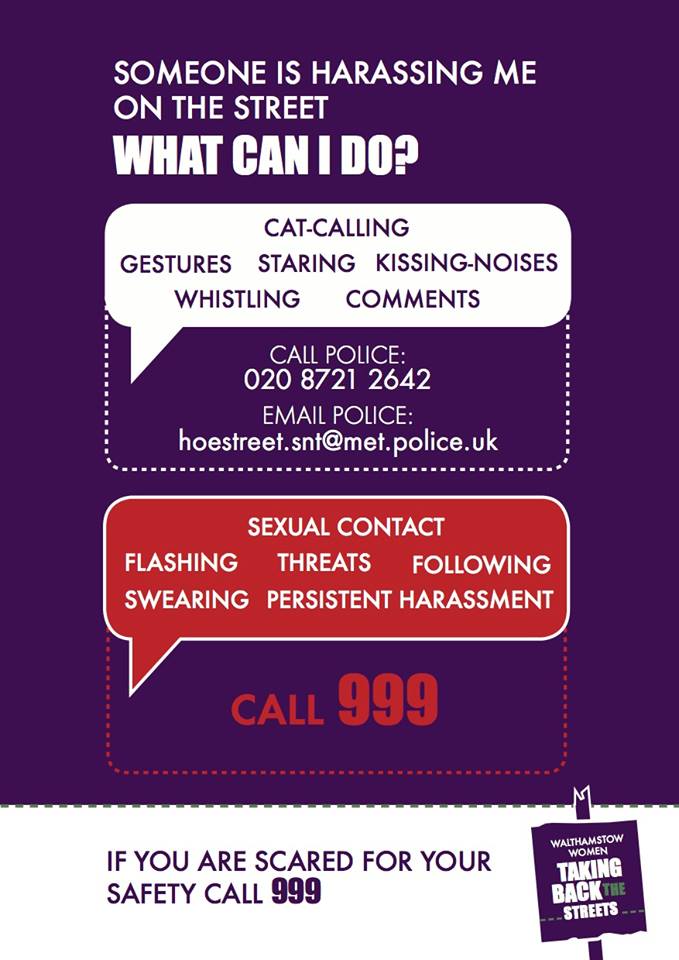Taking back the streets
/104
I was fifteen. I was cycling home from school, just a few roads left to go. The last stretch was tough, a main A-road.
I notice a blue car pull up alongside me, as if overtaking. But it doesn't overtake, it stays alongside me. I see three or four men in the car, laughing. I carry on as it tracks my pace. Suddenly, the car jolts into me, just missing my right elbow. I swerve left and rebalance. The men laugh more, and I suddenly realise, they're laughing at me. They're playing a game. I keep going, until it swerves into me again. They want to see me fall off my bike. They inch their car as close to me as possible, leaving me less and less room. My tyre scrapes against the steep kerb, and my hands lose grip on the handlebars they're sweating so much. I'm not scared, I'm angry.
I take the next left and memorise their registration plate.
Within a few minutes, I'm home and I write down the registration plate on a scrap of paper. My hand hovers over the phone.
I never made that call. I never reported them to the police. Nor did I report it the second time it happened. I genuinely didn't think it'd be taken seriously.
Last week, I was walking to work. I normally wear headphones, but I'd left them in the office the day before. A stream of traffic in front of me slowed for a red light. A man leant out of a white van and catcalled at me. I ignored him. He did it again. I gave him the finger. "Aww, don't be like that".
My MP, Stella Creasy, has been campaigning about street harrassment in the area, and has encouraged women to report all forms of street harrassment to police. At the very least, they can keep track of the number of incidents and pin down any hotspots. I'd hope they also educate the individuals who do it.

Remembering the campaign, I took a photo of the van and sent the photo to a police contact centre for non-emergencies. I had the van's registration plate, the exact time and location, even a phone number of the company that owned the van. (This man felt confident enough to catcall women from his company's branded vehicle). I got to the office and waited for a colleague to arrive before I phoned the company to tell them what had happened. The line was bad and they didn't know what catcalling was. They said they'd look into it but I doubt they did – they sounded annoyed, and didn't even take down my number.
The police contact asked me if it had happened before (which I thought was an odd question because 85% of young women have experienced street harrassment) and said they'd passed it onto the relevant force. They said I might hear back from them, but it's been a week now and I haven't. I appreciate that it's low priority, especially at a time when police are so stretched. But this is what happens when police forces are under resourced – low level crime and antisocial behaviour doesn't get tackled, and the streets get less safe for everyone – for women in particular.
It all comes from male entitlement. We’re struggling to put an end to it because when people complain, they’re told that being catcalled is normal.
Stella Creasy, MP for Walthamstow
You can protect yourself from some types of crime – install stronger locks, don't leave your valuables lying around, be more aware of your surroundings – but, short of being escorted everywhere by a man, there is nothing you can do to prevent catcalling when you're a woman. It happens when you're a schoolgirl wearing uniform. It happens when you're on a busy street. It happens when you're with your kids.
It changes your behaviour. You take different routes to work, you put headphones in, even when no music is playing. You dress differently. I cycle with a camera strapped to my bike after a series of incidents (including another attempt from men deliberately trying to knock me off my bike) that made me want to give up altogether.
Even if the police don't take street harrassment seriously, I'm going to keep reporting it, and I'm going to keep giving the men that do this the finger*.
*Two fingers is more British but it feels less satisfying.